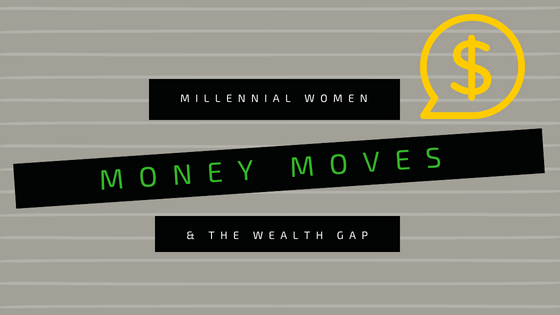Abortion rights, women of color, and LGBTQIA+ people are under attack. Pledge to join us in fighting for gender justice.
A Lifetime of the Wage Gap: A College Student’s Perspective
This post is the third in a series of blog posts leading up to Equal Pay Day (April 12) featuring women at the beginning and end of their careers reflecting on the impact of the lifetime wage gap.
 The post is written by Michelle Ngwafon, and undergraduate student at Howard University, who recently delivered similar remarks in front of the Maryland State General Assembly when she testified in support of Maryland’s Equal Pay for Equal Work Act.
The post is written by Michelle Ngwafon, and undergraduate student at Howard University, who recently delivered similar remarks in front of the Maryland State General Assembly when she testified in support of Maryland’s Equal Pay for Equal Work Act.
As the child of immigrants, all my parents ever wanted for me was to do better than they did. To make more money, get a better education and live a better life than they had a chance to. Looking at the end of my college career on the horizon, one thing I worry about is how pay equity will affect my career choices. More than 40 years after the ERA was so valiantly fought for, it’s predicted I won’t make the same as my male counterparts for over 40 more years. While my parents prepared me for being a person of color, they never sat me down to tell me I’ll spend my life making 40 cents less than the average man in my desired fields.
Fresh out of college I will likely be making less than my male counterparts—even those who are also social science majors like me. And the more professional degrees I have, the larger the gap is likely to be. Most people my age have little or no experience in their given fields, have no children, are not married and have few responsibilities. But a study conducted by the Department of Education looking at 2007-2008 graduates who entered the workforce full time in 2009 found that while men made almost $43,000 a year, their female counterparts still made over $7,000 less. This gap is found in every institutional category. Whether the school is private, public, vocational or for profit, women earned 75, 86, 81, and 84 percent, respectively, of what their male counterparts earned.
The ramifications are great and many. This translates into less money to pay off my student loans, because while the workforce may pay me less due to my gender, universities will not charge me less to compensate. Women have overtaken men as the majority of college students and graduates. But over half of women (53 percent) pay more than 8 percent of their earnings to student loan repayments (more than they can reasonably afford to pay), compared to 39 percent of men. Sen. Elizabeth Warren concluded that “it is a one-two punch. … Women take on big debts to go to college, but they have less money to pay off those debts.”
Over the course of my career, I stand to lose $877,480 because of the wage gap. This also means less money to put towards my retirement. In 2014, the average annual Social Security income received by women 65 years and older was $13,867, compared to $18,039 for men of the same age.
Looking at my life and my future, there’s already so many things which put me at a disadvantage as a woman. I’ll spend more than the average man on housing because of my desire to live in a safer neighborhood. I’ll also pay more for haircuts, dry cleaning, and personal care products, including deodorant. Then I remember a professor’s advice “Either have kids really young or have one when you’ve established yourself—anything else is career suicide.” It’s evident that being a woman will continue to put me at risk in the workplace.
I was once told women should simply be more assertive, we should work harder and be better. And it’s so hard not to just scream—women have worked hard forever. Women have been bettering themselves since the beginning of time. It was the assertiveness of women throughout history that brought about some of the world biggest movements. Equal pay isn’t about women needing to do better; it’s about society acknowledging it needs to do better. We should all be in support of the basic idea that a society which holds equality as an ideological principle should legislate and enforce the notion that any two individuals, regardless of race, creed or gender, should be paid equally for equal work.




